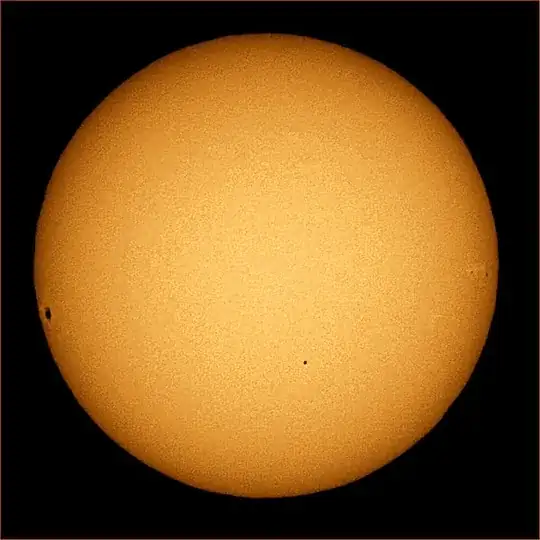Transit of Mercury as seen from Mars The Curiosity rover on the planet Mars observed the planet Mercury transiting the Sun, marking the first time a planetary transit has been observed from a celestial body besides Earth, on the 3rd June 2014.
This question may be answered by astronomy software, that's the reason I think there may be an answer. I have some similar programs, but none has this option.
Transit of Mercury from Earth.
I ask this question, can the Earth (actually the Earth Moon system), be viewed in transit across the sun, from pure curiosity, as I can't imagine it has much practical value, although I don't know enough about the subject to judge that. Possibly it gives an indication of the "flatness" of the orbital planes of the outer planets, although I am sure that this has long since been established
It may only be answerable by computer generated data, although I do not want to underestimate the astronomical achievements of generations of astronomers, who may well have worked out the dates of Earth transits a long time ago.
